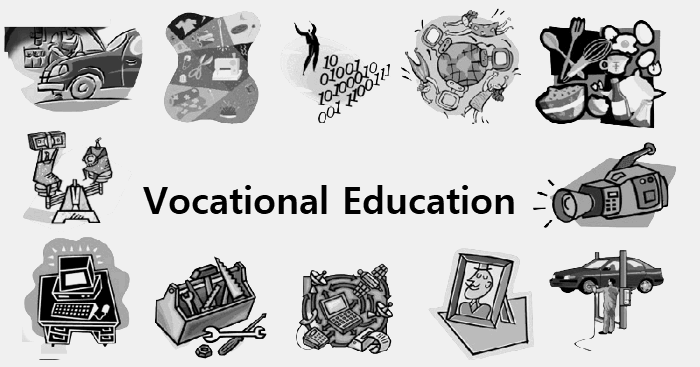
Online vocational programs are becoming increasingly popular as more and more people turn to the internet to further their education and skills. These programs offer a variety of benefits and drawbacks, and it is important to weigh the pros and cons before deciding to enroll in one.
One of the biggest advantages of online vocational programs is convenience. With the ability to take classes from anywhere with an internet connection, students can continue working and fulfilling other responsibilities while pursuing their education. This flexibility is especially beneficial for those who live in rural areas or have busy schedules.
Another advantage of online vocational programs is the cost. Online programs often cost less than traditional on-campus programs, and students may be able to save money on transportation and other expenses. Additionally, many online vocational programs offer financial aid and scholarships to help cover the cost of tuition.
Online vocational programs also offer a wide range of options for students. From healthcare and technology to business and design, there is an online vocational program for just about any field of interest. This allows students to pursue their passions and find a career that they truly enjoy.
However, online vocational programs also have some disadvantages. One of the biggest drawbacks is the lack of face-to-face interaction with instructors and classmates. This can make it difficult for students to ask questions and receive feedback, and it may also lead to feelings of isolation.
Another disadvantage of online vocational programs is the lack of hands-on training. Many vocational fields require hands-on experience to truly understand the material, and online programs may not provide the same level of training as traditional on-campus programs.
Finally, online vocational programs may not be recognized or accepted by certain employers. It is important to research the accreditation and reputation of the online program before enrolling, as some employers may not accept online degrees or certifications.
Another important aspect to consider when it comes to online vocational programs is the level of support and resources provided by the institution. A good online program should have a dedicated support team that is available to help students with any issues or questions they may have. This includes academic advisors, technical support, and even career services to help students with job searching and interviewing.
Online vocational programs also offer a level of flexibility in terms of course schedule and pacing. This means that students can work through the program at their own pace, and often have the ability to schedule classes around their work or personal life. For some students, this flexibility is a major advantage, as it allows them to take classes when it is most convenient for them.
Another advantage of online vocational programs is the ability to access resources and materials at any time. This means that students can refer back to lectures, notes, and other materials whenever they need to, which can be particularly helpful when studying or completing assignments.
However, it is important to keep in mind that online vocational programs also require a certain level of self-discipline and motivation. Without the structure of traditional on-campus classes, students must be able to stay on task and complete assignments on their own. This can be challenging for some individuals and may not be the best fit for everyone.
In addition, online vocational programs may not always provide the same level of networking opportunities as traditional on-campus programs. This is because students are not physically present in a classroom with their peers, which can limit their ability to make connections and form relationships with other students and professionals in their field.
When it comes to online vocational programs, it is important to carefully research the available options and determine which program is the best fit for your needs and goals. Make sure to look into the accreditation and reputation of the institution, as well as the level of support and resources offered. Additionally, consider your personal learning style and whether an online program is a right fit for you. By taking the time to research and consider all of these factors, you can make an informed decision about whether an online vocational program is a right choice for you.
Advantages and Disadvantages
Advantages of online vocational programs include:
- Convenience and Flexibility: One of the biggest advantages of online vocational programs is the ability to study from anywhere and at any time. This allows students to balance their education with other responsibilities such as work and family. With online programs, students can take classes at night, on weekends, or even during a lunch break. This flexibility allows students to continue working while they study, which can help to ease the financial burden of going back to school.
- Lower Costs: Online programs can often be less expensive than traditional on-campus programs. This is because students do not have to pay for room and board or transportation. Additionally, many online programs offer lower tuition costs than on-campus programs. This can make it more affordable for students to pursue their education.
- Variety of Programs: Online vocational programs are available in a wide variety of fields, from healthcare and technology to business and design. This allows students to choose a program that aligns with their interests and career goals. Additionally, online programs often offer a wider selection of courses and programs than on-campus programs.
- Self-Paced Learning: Online programs allow students to learn at their own pace, which can be beneficial for those who need extra time to grasp certain concepts. This can also be beneficial for students who have a busy schedule or who have other responsibilities that make it difficult to attend traditional classes.
Disadvantages of online vocational programs include:
- Lack of In-Person Interaction: One of the biggest disadvantages of online vocational programs is the lack of in-person interaction with instructors and classmates. This can make it difficult for students to form connections and get feedback on their work. Additionally, online classes can feel isolating and lack the sense of community that is present in traditional on-campus programs.
- Limited Resources: Online programs may not have access to the same resources as traditional on-campus programs, such as laboratories, libraries, and other facilities. Additionally, students may not have access to the same level of support services, such as career counseling and academic advising.
- Requires Self-Discipline: Online programs require a great deal of self-discipline, as students are responsible for staying on top of their coursework and meeting deadlines. This can be challenging for some students who may find it difficult to stay motivated and focused while studying online.
- Potential for Isolation: Without the structure and social interaction of a traditional campus environment, some students may feel isolated and disconnected from their peers and instructors. Additionally, students may not have the same opportunities to network and make connections with other students and professionals in their field.
In conclusion, online vocational programs offer a convenient and flexible way to gain new skills and advance one's career. They are a great option for students who are looking for a flexible and affordable way to pursue their education. However, as with any form of education, online vocational programs have their own set of advantages and disadvantages. It is important for students to weigh the pros and cons before deciding whether an online program is a right fit for them. It's important for students to have a clear understanding of their own learning style, the resources they will need and the self-discipline required for an online program. Additionally, required to succeed in an online program. it's important to research the online program and make sure it's reputable and accredited. Not all online programs are created equal, and it's important to make sure the program you choose is recognized by industry professionals and will give you the skills you need to succeed in your chosen field.
Also Read:
- Apprenticeships: How to Get Started
- Careers in Trades: Opportunities and Salaries
- Choosing a Vocational Career: What to Consider
- Importance of Vocational Education in Today's Job Market
- Online Vocational Programs: Advantages and Disadvantages
- Preparing for a Vocational Career: Tips and Strategies
- Role of Government in supporting Vocational Education
- The Advantages of Vocational Education for High School Students
- The Future of Vocational Education: Emerging Trends and Technologies
- The Role of Vocational Education in Economic Development
- The Vocational Education and Training System
- Types of Vocational Programs: Which One is Right for You?
- Vocational Education and Entrepreneurship
- Vocational Education and Industry 4.0
- Vocational Education and Job Placement
- Vocational Education and Lifelong Learning
- Vocational Education and Skills Shortage: How to bridge the gap
- Vocational Education and the Future of Work
- Vocational Education and the Gig Economy
- Vocational Training vs. College: What's the Difference?






